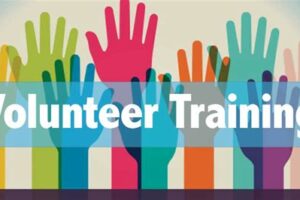Table of Contents
Find out if you can write off volunteer work on your taxes and maximize your tax savings. Learn the requirements and guidelines for deducting volunteer expenses from your taxable income. Get expert advice on how to navigate the complex tax rules and ensure you are taking full advantage of any available deductions.
Are you passionate about giving back to your community and making a difference? If so, you might be interested to know that your volunteer work could potentially have tax benefits. That’s right – by volunteering your time and expertise, you may be able to write off certain expenses on your taxes. It’s not only a way to contribute to society but also a chance to potentially save some money. In this article, we will explore the ins and outs of writing off volunteer work on your taxes, providing you with valuable information and guidance on how to maximize your impact while minimizing your tax liability.
Introduction
Volunteering is a noble act of giving back to the community and helping those in need. Many individuals generously donate their time and skills to various organizations and wonder if there is any tax benefit associated with their efforts. In this article, we will explore whether you can write off volunteer work on your taxes and understand the guidelines surrounding this topic.
The General Rule
According to the Internal Revenue Service (IRS), the general rule is that you cannot deduct the value of your time or services given to a charitable organization as a charitable contribution. This means that even though your volunteer work is valuable and important, it does not translate into a direct tax deduction.
Out-of-Pocket Expenses
While you may not be able to deduct the value of your time, there are certain out-of-pocket expenses related to volunteering that may be eligible for tax deductions. These expenses include:
- Transportation costs
- Parking fees
- Tolls
- Uniforms or protective clothing required for volunteering
- Supplies and materials directly related to your volunteer work
Documentation and Record-Keeping
When it comes to claiming deductions for out-of-pocket expenses related to volunteer work, proper documentation and record-keeping are crucial. It is essential to keep receipts, invoices, and any other relevant documents that support your expenses. Without proper documentation, the IRS may not consider your deductions valid.
Qualifying Organizations
To be eligible for any potential tax deductions, it is important to ensure that the organization you are volunteering for is a qualified charitable organization according to the IRS. Most nonprofit organizations, religious institutions, and government agencies qualify. However, it is always a good idea to verify the organization’s status before claiming any deductions.
Travel Expenses
If your volunteer work requires you to travel, you may be able to deduct certain travel expenses. This includes transportation costs such as airfare, train tickets, or mileage if you use your own vehicle. However, it is important to note that the travel must be directly connected to your volunteer work, and personal side trips or vacations cannot be claimed as deductions.
The 14-Cent Rule
When calculating mileage for volunteer-related travel, the IRS allows a deduction of 14 cents per mile driven in service of charitable organizations. This rate, however, is subject to change each tax year, so it is important to stay updated with the latest IRS guidelines.
Meals and Lodging
If you incur expenses for meals or lodging while volunteering, they may be deductible under certain circumstances. Generally, only the actual cost of the meals and lodging directly related to your volunteer work can be claimed as a deduction. It is important to have proper documentation for these expenses, including receipts and proof that they were incurred while volunteering.
Exceptions to the Rule
While the general rule states that you cannot deduct the value of your time volunteering, there are a few exceptions. If you incur expenses while volunteering that would typically be tax-deductible if paid for in cash, you may be eligible for an equivalent deduction. This means that if you would have been able to claim a deduction for the expense had you paid for it yourself, you may be able to claim it as a volunteer expense.
Consult with a Tax Professional
Understanding the rules and regulations surrounding tax deductions for volunteer work can be complex. It is always a good idea to consult with a qualified tax professional who can provide personalized advice based on your specific situation. They can guide you through the process, help maximize your eligible deductions, and ensure compliance with all IRS requirements.
The Joy of Giving
While volunteer work may not offer direct tax deductions for the value of your time, the true reward lies in the positive impact you make on the lives of others and the joy of giving back to the community. While it’s important to be aware of potential deductions for out-of-pocket expenses, the spirit of volunteerism should always be motivated by a desire to help others rather than seeking financial benefits.
In conclusion, volunteer work is a selfless act that provides immeasurable value to society. While you may not be able to write off the value of your time, there are potential tax deductions available for certain out-of-pocket expenses. Remember to keep detailed records, consult with a tax professional, and continue making a difference in the lives of others through your generous volunteer efforts.
Can You Write Off Volunteer Work On Your Taxes
Introduction:
Volunteer work is a noble effort, but many wonder if they can benefit financially through tax deductions. This article will shed light on whether you can write off volunteer work on your taxes, helping you understand the potential tax benefits of your charitable efforts.
1. Understanding Volunteer Work:
Volunteer work refers to unpaid activities performed for a qualifying organization, such as a nonprofit or a government entity. While you may not receive financial compensation for your services, there are other potential benefits, including potential tax deductions.
2. Qualifying Expenses:
To be eligible for tax deductions, you must incur certain expenses while volunteering. These expenses usually include unreimbursed expenses directly related to your volunteer work, such as travel expenses, uniforms or supplies required for your duties, or any other expenses deemed necessary by the charitable organization.
3. Documentation Requirements:
When considering tax deductions for volunteer work, proper documentation is crucial. To claim deductions, you must maintain detailed records of your volunteer activities, including the dates, hours spent volunteering, and any expenses incurred. Additionally, organizations must provide written acknowledgment detailing the services you provided and any out-of-pocket expenses incurred.
4. Deductible Travel Expenses:
Volunteers can usually deduct travel expenses directly related to their volunteer work, such as airfare, bus or train tickets, or mileage if using their personal vehicle. However, it’s important to note that commuting expenses between your home and the volunteer location are generally not deductible.
5. Uniforms and Supplies:
If your volunteer work requires you to wear uniforms or purchase specific supplies, such as safety gear or tools, these expenses can potentially be deducted. However, the expenses must be necessary for your duties and not suitable for everyday use to qualify for tax deductions.
6. Meal and Accommodation Expenses:
In some instances, volunteers may be eligible to deduct meal and accommodation expenses incurred while performing their volunteer services. However, these deductions are subject to limitations and only apply if the expenses were necessary, directly related to the volunteer work, and not reimbursed by the charitable organization.
7. Benefits of Non-Itemized Deductions:
Even if you do not itemize your deductions, you may still benefit from deducting volunteer expenses. The Coronavirus Aid, Relief, and Economic Security (CARES) Act allows taxpayers who claim the standard deduction to deduct up to $300 in cash contributions, including cash donations made while volunteering, for the tax year 2021.
8. Seek Professional Advice:
Determining whether you can write off volunteer work on your taxes can be complex, as it depends on various factors and specific circumstances. It is advisable to consult a tax professional who can provide personalized advice based on your situation, ensuring accurate reporting and maximizing any potential tax benefits.
Conclusion:
While volunteer work is not directly tax-deductible, certain qualifying expenses related to your volunteer activities may be eligible for deductions. By understanding the nuances and requirements surrounding tax deductions for volunteer work, you can ensure proper documentation and potentially benefit from tax incentives while serving your community.
In a professional context, it is essential to understand the rules and regulations surrounding tax deductions for volunteer work. Although giving back to the community is a selfless act, individuals often wonder if they can write off their volunteer work on their taxes. Let us explore this topic from a professional standpoint:
When considering whether you can write off volunteer work on your taxes, several key points should be taken into account:
- Nature of the organization: To qualify for a tax deduction, the organization you volunteer for must be a qualified tax-exempt nonprofit organization. This means that they have been granted 501(c)(3) status by the Internal Revenue Service (IRS). It is crucial to verify the organization’s status before attempting to claim any deductions.
- Expenses incurred: While volunteers generally cannot deduct the value of their time or services, they may be eligible to claim deductions for certain out-of-pocket expenses directly related to their volunteer work. These expenses could include travel expenses, parking fees, and supplies purchased solely for the purpose of volunteering.
- Substantiation requirements: Proper documentation is essential when claiming deductions for volunteer work. It is important to keep detailed records of your volunteer activities, including the dates, the number of hours worked, and the specific expenses incurred. Without proper documentation, the IRS may reject your deduction claims.
- Threshold limitations: It is important to note that deducting volunteer expenses is subject to certain limitations. For example, miscellaneous itemized deductions, which would include volunteer expenses, are only deductible to the extent that they exceed 2% of your adjusted gross income (AGI). Additionally, certain high-income taxpayers may face additional limitations due to their income level.
- Consulting a tax professional: Given the complexities surrounding tax deductions for volunteer work, it is highly recommended to consult a qualified tax professional. They can provide personalized advice based on your specific situation, ensuring compliance with IRS regulations and maximizing any potential deductions.
It is crucial to approach the topic of writing off volunteer work on your taxes from a professional standpoint. While there may be opportunities to claim deductions for certain expenses, it is essential to understand the eligibility criteria and adhere to the IRS guidelines. Consulting a tax professional will provide you with expert guidance and ensure that you navigate the process correctly.
Thank you for taking the time to visit our blog and explore the topic of whether you can write off volunteer work on your taxes. We understand that navigating the world of tax deductions can be overwhelming, so we hope that this article has provided you with valuable information and insights.
Throughout the article, we discussed the concept of writing off volunteer work on your taxes, highlighting both the limitations and potential benefits. While it is not possible to directly deduct the value of your time and services as a volunteer, there are certain expenses related to volunteering that may be eligible for tax deductions.
It is important to remember that tax laws can be complex and subject to change, so it is always advisable to consult with a qualified tax professional or use reliable tax software to ensure accuracy when filing your taxes. They can guide you through the specific requirements and regulations that apply to your individual circumstances, helping you maximize any potential tax benefits.
In conclusion, while you cannot directly write off the value of your volunteer work on your taxes, there may still be opportunities to benefit from tax deductions related to volunteering. By understanding the specific expenses that may be eligible for deductions and seeking professional advice when needed, you can ensure that you navigate the tax landscape effectively and take advantage of any available tax benefits.
Once again, thank you for visiting our blog. We hope that this article has been informative and helpful in clarifying the question of whether you can write off volunteer work on your taxes. If you have any further questions or would like to explore more tax-related topics, please feel free to browse through our other articles. We wish you all the best in your tax planning endeavors!
.
Here are some common questions that people also ask about writing off volunteer work on their taxes:
Can you write off volunteer work on your taxes?
Yes, in certain cases, you may be able to write off volunteer work on your taxes. However, it is important to note that the rules and regulations around deducting volunteer work can be complex, and specific requirements must be met to qualify for the deduction.
What types of volunteer work can be written off?
You can potentially write off volunteer work done for qualified nonprofit organizations that are recognized by the Internal Revenue Service (IRS). This typically includes charitable activities such as providing services to help the needy, participating in fundraisers, or contributing professional skills pro bono.
Are there any limitations on deducting volunteer work?
Yes, there are limitations on deducting volunteer work. You cannot deduct the value of your time or services given as a volunteer. However, you may be able to deduct certain out-of-pocket expenses directly related to your volunteer work, such as travel expenses, parking fees, or supplies purchased for the organization.
What documentation is required to claim deductions for volunteer work?
To claim deductions for volunteer work, it is essential to maintain proper documentation. This may include obtaining written acknowledgment from the organization you volunteered for, keeping receipts for any out-of-pocket expenses, and accurately documenting the time spent on volunteer activities.
Should I consult a tax professional for guidance on deducting volunteer work?
Given the complexity of tax laws and regulations surrounding volunteer work deductions, it is advisable to consult a qualified tax professional. They can provide personalized advice based on your specific situation and help ensure that you meet all the necessary requirements for deducting volunteer work on your taxes.
Remember, while it may be possible to write off volunteer work on your taxes, it is important to comply with all applicable tax laws and regulations. Consulting a tax professional will help you navigate the process and maximize any potential deductions.






